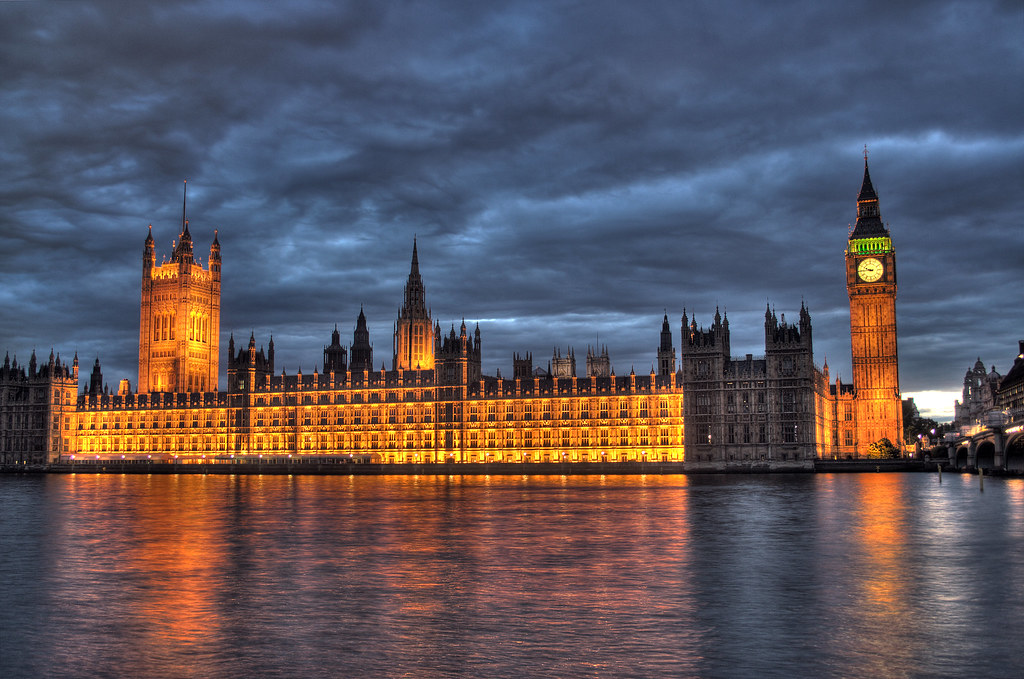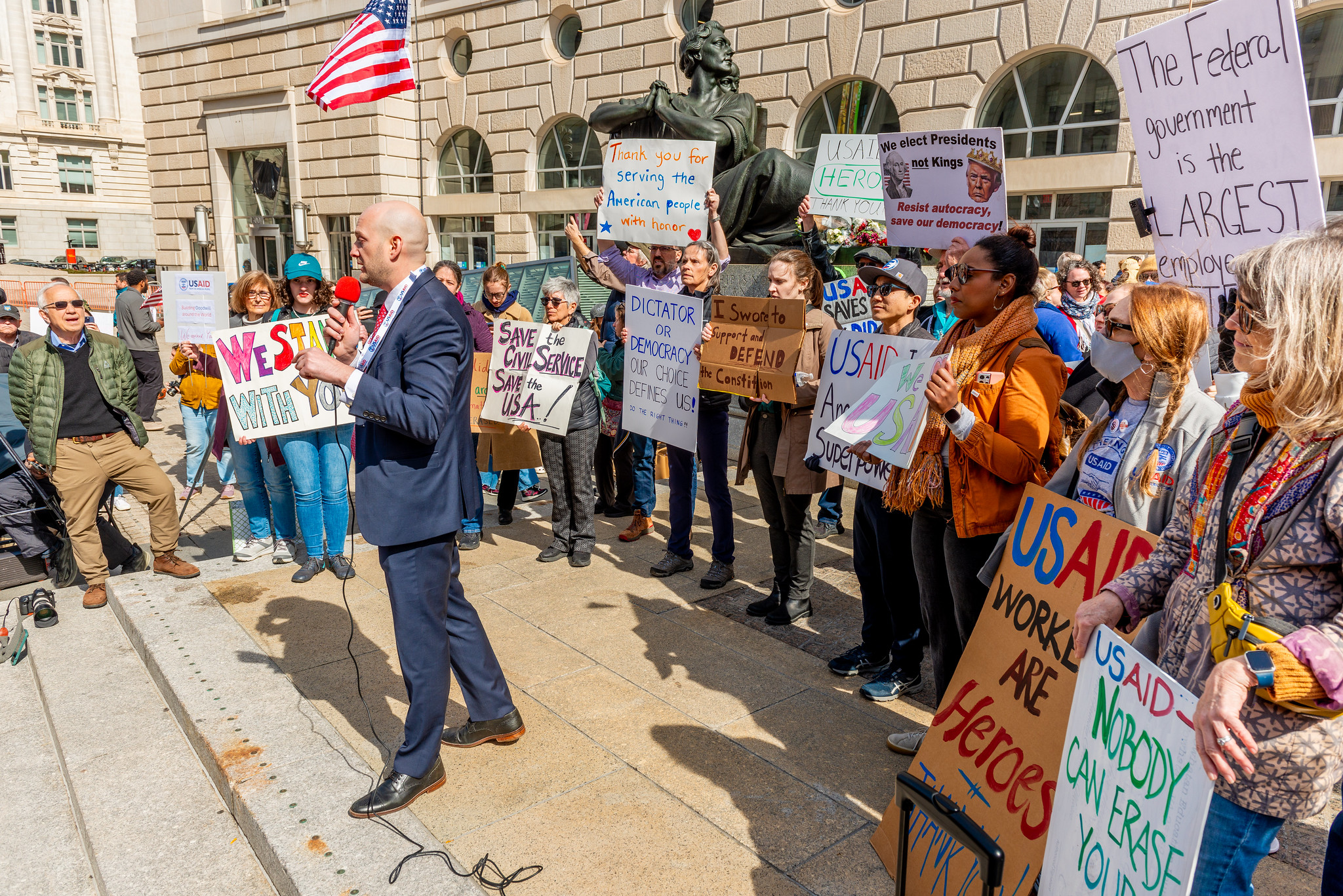Brexit Endgame: Parliament Agrees to December Elections
Editor's Note: This article originally appeared on Order from Chaos.

Published by The Lawfare Institute
in Cooperation With

Editor's Note: This article originally appeared on Order from Chaos.
Halloween has been spared the tricks and treats of Brexit, but snap elections to resolve the impasse will interrupt Christmas festivities. Although the British Parliament finally approved a Brexit deal, it voted against the proposed three-day timetable for its ratification. The European Union formally granted an extension to the deadline; January 31, 2020 is the new cliff edge. After several days of churn, Parliament agreed this week to hold elections on December 12 to break the gridlock.
Didn’t Parliament Approve the Brexit bill?
On October 22, British Prime Minister Boris Johnson brought the revised Withdrawal Agreement Bill — the legislation that will implement Brexit in domestic law — to Parliament. Members supported the bill by 329 to 299 votes in the second reading, marking the first time that Parliament has approved any Brexit deal. Notably, all 28 members of the hardline European Research Group (ERG) backed the bill along with 19 Labour members of Parliament (MPs), while all 10 members of Northern Ireland’s Democratic Unionist Party (DUP) opposed it. During the next legislative phase, members planned to introduce amendments calling for a customs union, a second referendum, and stronger protections for environmental and workers’ rights; it is unclear if the amendments or the final version would have been adopted.
Parliament then voted on the programme motion, the proposed three-day timetable for scrutiny, amendment, and final passage of the bill. Members balked at the accelerated plan to scrutinize a 115-page bill introduced the night before. (One analyst noted this consequential legislation would have received less consideration than did the Wild Animals in Circuses Act.) MPs opposed the expedited timetable in a 322 to 308 vote. In response, Johnson said he would pause the legislative process.
(A quick note on parliamentary procedure: Johnson was prevented from holding another “meaningful vote” on the deal, given that the measure had already been considered the preceding weekend. He instead brought forward the implementing legislation, which included a provision removing the need for this separate vote; its passage would have enabled him to withdraw the extension request mandated by Parliament. Parliamentary procedure requires three readings of a bill: The first reading is a formality, the second reading enables members to debate the bill’s principles and determine if it should proceed, and the third reading is the final vote.)
When is the Brexit Deadline?
On October 28, the EU agreed to the U.K.’s request to extend the Brexit deadline to January 31, 2020. French President Emmanuel Macron had advocated a shorter technical extension, until November 15 or 30, to pressure Parliament into adopting the existing deal. The EU made clear this extension was to enable completion of the ratification process rather than to facilitate further negotiations. The U.K. could leave the EU sooner if the British Parliament and European Parliament ratify the agreement. Johnson accepted the extension, noting the legal requirement while expressing his personal opposition. Outgoing European Council President Donald Tusk tweeted:
To my British friends,
— Donald Tusk (@eucopresident) October 29, 2019
The EU27 has formally adopted the extension. It may be the last one. Please make the best use of this time.
I also want to say goodbye to you as my mission here is coming to an end. I will keep my fingers crossed for you.
Why Was There a Fight Over Elections?
Johnson introduced a motion on October 28 under the Fixed Term Parliament Act to hold elections on December 12. He failed for a third time to secure the requisite support from two-thirds of Parliament, due in large part to the Labour Party’s abstention. Its leader, Jeremy Corbyn, said he did not trust Johnson and wanted to rule out entirely a no-deal Brexit.
The next day, Johnson introduced a one-sentence bill to amend the Fixed Term Parliament Act by setting a December 12 election date. This legislative route only required a simple majority vote. However, it enabled amendments — which prompted debate over the extension of voting rights to EU nationals living in the U.K. and young people, as well as the polling date — and required concurrence from the House of Lords. It passed overwhelmingly, with 438 votes in favor and only 20 against. This will be the first December ballot since 1923, with some MPs grumpy about campaigning on cold, dark nights and pre-empting holiday festivities scheduled in polling stations.
What changed? The EU, which was waiting to see how British politics unfolded, announced its decision to extend the deadline after Johnson called for elections. Johnson promised not to move forward with the Brexit bill before elections. With the extension secure, the Liberal Democrats and Scottish National Party (SNP) expressed support for snap polls; however, they preferred December 9 to attract more student voters and limit the potential for Johnson to act on the Brexit bill. This forced Corbyn to change his stance, as it was clear the elections motion would pass without Labour. (Notably, the Liberal Democrats and SNP abstained on the final vote after they failed to change the date.) Ahead of the vote, Johnson sought to reunify the Tory party by restoring the whip to 10 of the 21 MPs he had expelled for rebelling against his government to prevent a no-deal Brexit.
Parliament will be dissolved on November 6. Given the Queen’s Speech on October 14, this is the shortest parliamentary session since 1948. One of the remaining agenda items is securing a budget for Northern Ireland. With Speaker John Bercow stepping down, there are questions about whether his replacement will be chosen by the current Parliament or after elections.
Will Elections Clarify the Brexit Debate?
After over two years of Brexit deadlock, voters will finally have their say. Opinion polls currently show the Conservatives averaging an 11-point lead over Labour. However, former Prime Minister Theresa May had nearly twice this polling margin in 2017 before losing her parliamentary majority in snap elections that June.
Voters will have a clear choice regarding the future of Brexit and domestic policies. One option is returning Johnson’s government, which will seek to finalize Brexit and begin negotiating free trade agreements with the EU and the United States. Johnson will use a “people versus Parliament” narrative to explain the Tory failure to deliver Brexit and seek a majority to complete the process. He will also seek to implement his domestic agenda as presented in the Queen’s Speech in mid-October, which focused on crime, education, and healthcare.
If the Conservatives fail to secure a governing majority, it lacks coalition partners — with the exception of the DUP, which believes it could return as kingmaker. The biggest threat comes from Nigel Farage’s Brexit Party, which could prevent a Tory majority by attracting frustrated supporters who want an immediate no-deal Brexit. The party is currently debating whether to contest all seats or target fewer pro-Brexit constituencies, particularly those currently represented by Labour.
Alternatively, voters could opt for a Labour government. On Brexit, the party would seek to renegotiate a softer Brexit agreement before holding a second referendum. Although this approach appeals to many voters (including some Remainer Tories), there is concern about Corbyn’s desire to radically alter the British economy.
Rather than clarifying the Brexit question, elections could inject further uncertainty. One-third of voters have switched parties in the last two general elections, according to the British Election Study, making the results impossible to predict. Voters have shifted away from traditional left/right divisions to Leave/Remain ones. As a result, the elections could easily produce a hung Parliament or a coalition between Labour and one or more smaller parties. The Liberal Democrats will present the election as the last chance for voters to stop Brexit, seeking to peel away Labour supporters by promising to revoke Britain’s request to leave the EU. The SNP will be a compelling option for Remain voters in Scotland, although some are wary of the party’s call for a second Scottish independence referendum; the party also faces internal challenges, as its former leader will face trial in the new year on sexual assault charges.





